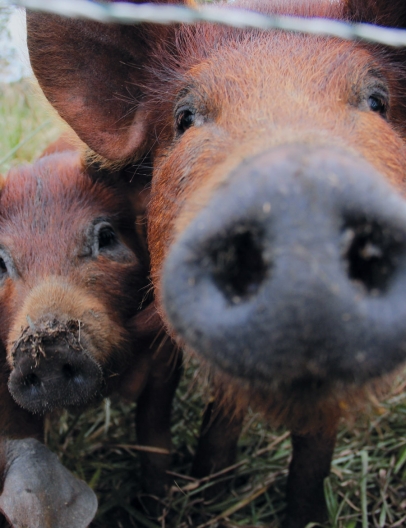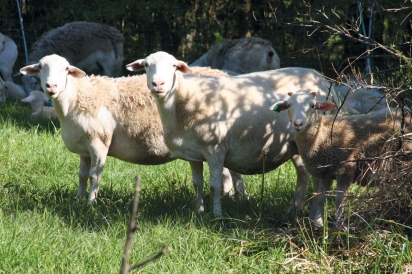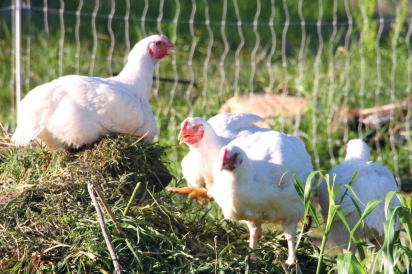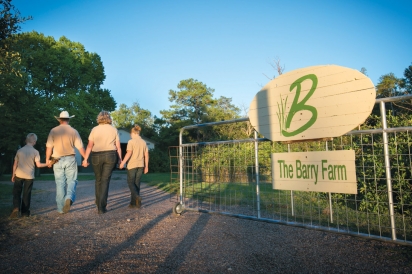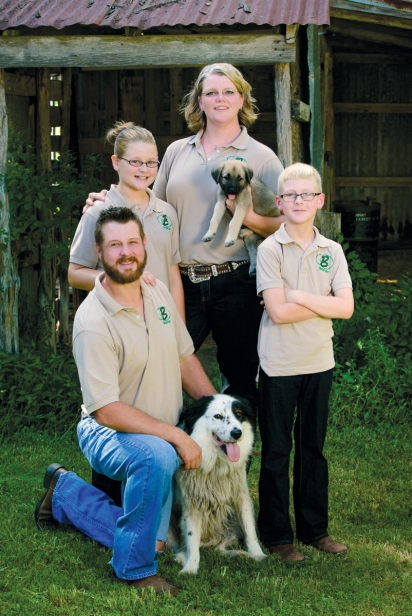Making Every Part Count
Falling for locally raised meat and its true worth
Picture this: You’re at the supermarket and find yourself in the poultry aisle, staring at glowing shelves of chicken parts. Skinless breasts, boneless thighs, so-called all-natural skin-on drumsticks, a fleet of angular little wings. Whole chickens, concealed within plastic packaging that boast the birds within were raised without hormones and on GMO-free feed. Snuggled nearby, others claim to be organic and to have roamed freely in a range of some sort.
If you’re like me—in that you spend some time while gathering ingredients to read and ponder in an attempt to make selections as an educated consumer—all these labels and options can make you weary in a hurry. Feeding family and friends is a happy experience, but traversing the checklist of undefined food jargon terminology? Not so much.
There is, however, another way: the farmers market. Of course, while it’s easy enough to succumb to a vibrant bundle of rainbow carrots, far fewer marketgoers seek what lies within the coolers stationed behind the ranchers who raise local meats.
After all, as we’ve learned in the poultry aisle, meat is more intimidating. It was alive in a much more visceral way than a carrot. Meat clucked, baaed and mooed, munched its own meals, took naps in the sunshine if it was lucky. The reality of this vitality is what makes the careful consideration of where we source our meat so crucial. Our decisions influence the systems in which the animals that were bred for that meat are raised. We owe it to them to think things through.
Fortunately, with Houston’s close proximity to dozens of small farms, there’s little excuse to not at least explore the many options in our city’s own backyard. I find it comforting to know that many of these farms are run by families whose original intention was to skip the whole grocery store conundrum themselves. Case in point: the Smiths.
“We leased the land with the intention to raise for our family,” says Geoffrey Smith of the acreage in Needville, where he and wife, Renee, now live and operate The Barry Farm with their two children. “It was, like, one pig, 10 chickens, a few extra to help cover costs.”
Before long, news got out about the family’s rearing of clean, pastured meat, and the Smiths were asked to raise kosher chickens for a local Jewish congregation. Ever since, Geoff and Renee have farmed not just for their family but for their community. Their brood includes Cornish Cross hens, White Dorper sheep and Red Wattle hogs, as well as citrus and blackberries seasonally, all of which are raised with flavor in mind first and foremost. Today, 80 percent of the farm’s sales are to other local families; the rest is sourced by area restaurants.
Rather than pepper them with questions from a checklist, the Smiths invite you to visit the farm to experience it firsthand. “When you come out here, I don’t have to use all the farmers market adjectives,” says Geoff, who provides informal tours of the pastures where his flocks roam, including during on-farm dinners in partnership with local chefs who believe in their mission to raise meat the old-fashioned way. “Do I have to say ‘local’? Do I have to say ‘pasture-raised’ here? The checklist goes away when people actually see it."
In what conditions did the animals live? Why did the farmer choose a particular breed? How did he or she get into farming? Being able to chat with the people who have dedicated their lives to rearing protein destined for your table is a wonderful opportunity.
“We are this close in America to being able to have complete meals without having to interact with anyone through that whole chain,” says Geoff. Area farms raising livestock respectfully remove the guesswork from purchasing meat and poultry. A conversation with a farmer will help you understand a product far better than buzzwords. On top of that, you’ll get to build a relationship with someone who shares your interest in honest food, which—again, if you’re like me—is always cool.
For some of us, there is still that sticky matter of the price tag. Certainly, humanely raised meat is more expensive to produce and therefore a bigger investment than its grocery store brethren. However, with a bit of ingenuity and some basic kitchen tricks tucked in your apron, you can stretch that meat’s value like a chef.
Take chicken, for example: Buying a pack of skinless breasts makes for simple meal prep, but then that’s all you get. When you spring for the whole bird, you’ll have (a) a better value per pound, (b) a less processed, more sustainable product and (c) the gift that keeps on giving. Fancy a roast chicken tonight? By all means! When that bird emerges crisp and golden from the oven, enjoy your dinner, but hold onto the carcass! Those bones are imbued with magic. Tuck them away in the freezer in a gallon bag along with trimmings from celery, carrots, fennel, mushrooms, sticky garlic skins, the papery outer layers of onions and the stems of fresh herbs.
When purchasing meat from larger livestock, consider buying primal cuts and learning how to break them down into smaller cuts to keep on hand in the freezer. Not much space or interest in home butchering? Ask your rancher which cuts are harder to sell. By taking home a less-sought-after cut, you’ll get a better deal as well as help the farmer move product (thus contributing to a more sustainable system).
At The Barry Farm, Renee encourages kitchen-savvy patrons to try a lamb or pork shoulder roast, rather than the familiar chop or rump. Like the chicken, after a simple slow braise turns the meat tender and the skin crackled, and after you greedily folded all that flavorful goodness into warm tortillas, you once again have roasted bones to produce a beautiful scratch-made stock. Having homemade lamb stock on hand is about as luxe as local gets, perhaps even more so than those picture-perfect carrots.
> For more info about The Barry Farm or to schedule a tour with the Smiths, visit thebarryfarm.com.


